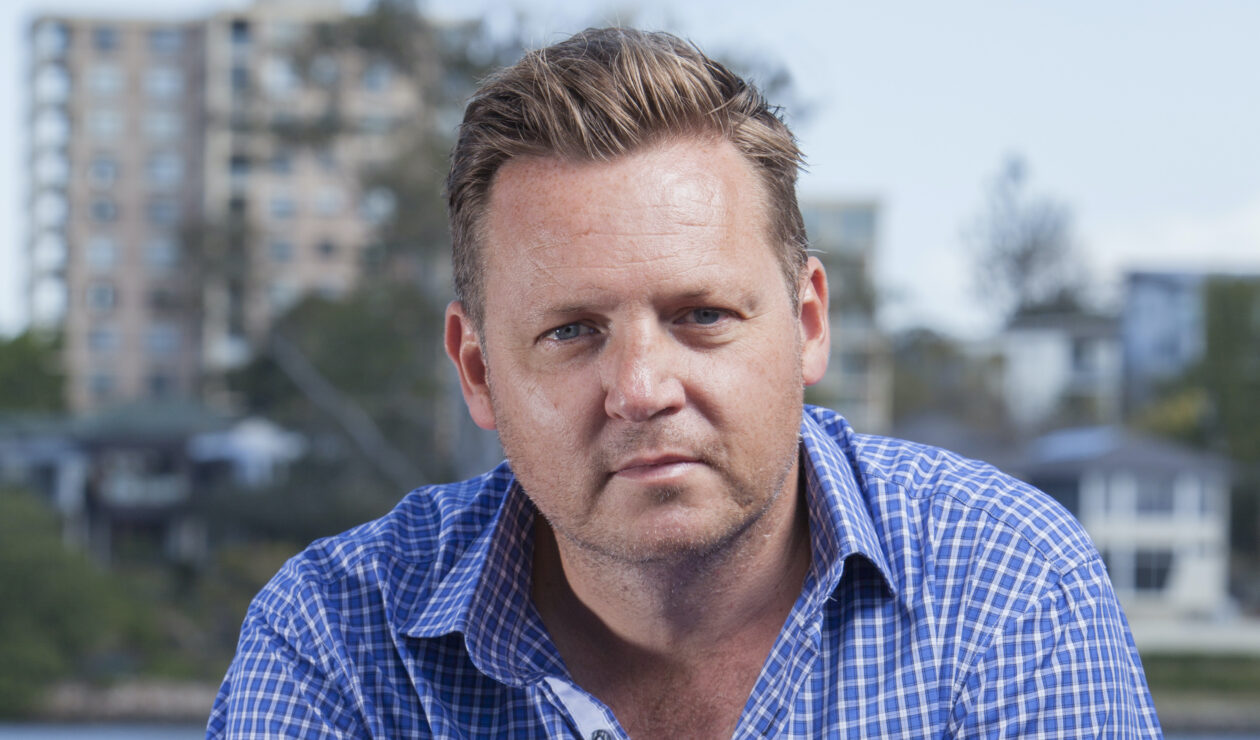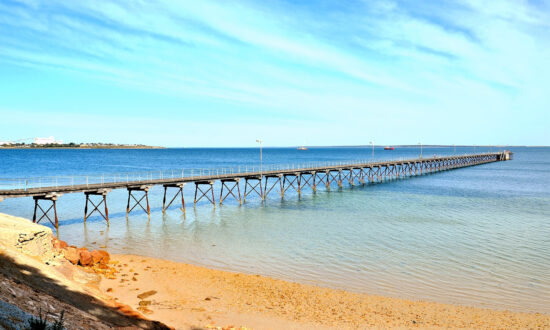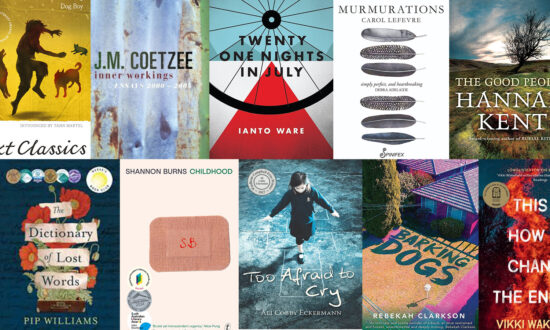Brisbane-based, Icelandic-born writer and academic Kari Gislason’s latest book, Running With Pirates, is a tender and elegiac meditation on the power of the past to bleed into the present.
Subtitled On freedom, adventure, and fathers and sons, the book deals with father figures and Gislason’s resolution to forge a strong, loving relationship with his own sons while traversing the strange land of parenthood, while also avoiding hardening with age and repeating his father’s mistakes.
This is a book comprising dual narratives: one dealing with 18-year-old Gislason’s time spent living and working on the Greek island of Corfu in 1990; the other detailing his return trip there in 2022, accompanied by his wife, Olanda, and two teenage sons, Finnur and Magnus.
In unravelling the life-long effects of events that occurred in his youth, the two narrative threads are deftly, richly written and expertly interwoven and interlinked by the older Gislason’s reflections on his younger self. His tendency, thankfully, is to treat that self with the same kind-heartedness and emotional ease he now extends to his sons.
At 18, Gislason, now professor of creative writing and literary studies in the creative industries faculty at QUT, had been raised by a single mother and had just met his Icelandic father for the first time, only to find that his father did not wish to be a part of his life.
While travelling around Scotland, Gislason met Paul, a drifting Glaswegian of similar age, who was looking to escape unspecified “problems” in his life. The two backpacked around Europe together before heading for the idylls of island life in Greece.
When the pair landed in Corfu, virtually penniless and with nowhere to live, a local townswoman took pity on them and transported them to a village where she ran a campsite, allowing them to stay there until they found work. She directed them to a taverna owner who was known locally as “the pirate” and who helped the two young men find work in addition to feeding them nightly at his bustling taverna.
The work the two were given was simple but fulfilling. Gislason works initially to lime wash the out-building of a local cobbler, and there an elderly woman sees that his shoes are literally falling apart so gifts him a pair of shiny leather boots, albeit several sizes too small for his feet. Later, he and Paul work as labourers for a local builder in the hills, an hour-and-a-half out of town, rising at 5am to make the arduous, twisting journey to the worksite.
Throughout much of Running With Pirates, the titular pirate himself remains something of a mystery, which is fitting given that he was essentially a mystery to Gislason. A burly man with long, flowing black hair, Gislason is suspicious that the pirate is a smuggler of guns or drugs and wary of his ever-changing disposition. He’s gruff and surly when the two young men first encounter him, extroverted and welcoming to the tourists that patronise his taverna, caring and something approaching gentle and understanding when Kari and Paul approach him regarding money troubles and their need to move away from the campsite.
Indeed, as Gislason observes, his story of time spent with the pirate has a sort of folkloric quality to it. For his children, who are both under the age of five when he first tells them the earliest iteration of a tale that will come to be a life-long fixation, the story takes on near-mythic status as they grow up. The nature of that myth changes as they age.
“A telling (of the tale) reflects its own moment,” Gislason writes. “And my listeners are changing very quickly at the moment. With it, their understanding. When they were young, and they hear about the pirate and other adventures that pre-dated their lives, the boys often seem to be slightly in disbelief at the shape of the world as it existed before they came along.”
In order that the boys better understand the backstory that has run like a continual undercurrent throughout their lives, Gislason takes them to Corfu to show them his old stomping ground. His goal is to let them walk the streets where he lived and worked and to eat meals at the taverna where he was nourished after days of hard physical labour when he was just a few years older than his teenagers are now. Gislason wants them to flesh out for themselves the tangible details of a story they have heard countless times.
While the trip is coloured by nostalgia for the past, Gislason never falters in recollecting and examining what was, never lapsing into overt or mawkish sentimentality. This is both to his credit and a fundamental part of what makes the telling of his story so enormously emotional.
This is a writer who understands the power of language and the fallible, ever-evolving nature of the father-son bonds he is describing. This is true whether he is reflecting on his own troubled relationship with his distant father, the pseudo-paternal role the pirate played in his young life or his own ferocious ties to his two boys, for whom he clearly has boundless love.

Get InReview in your inbox – free each Saturday. Local arts and culture – covered.
Thanks for signing up to the InReview newsletter.
Reading Running with Pirates, I was reminded of George Eliot’s observation in Middlemarch: “It is a father’s duty to give his son a fine chance.”
In sharing his story with his sons, and literally taking them to see where such a formative period of his life unfolded, Gislason took the undertaking of that duty to an entirely new level.
He was, and he is, as he movingly recounts: “Letting go. Letting them go, not cold-heartedly or resignedly, but with a heart full of love. To let them be part of the world. To find their own islands.”
Running With Pirates by Kari Gislason, University of Queensland Press, $34.99
uqp.com.au
Support local arts journalism
Your support will help us continue the important work of InReview in publishing free professional journalism that celebrates, interrogates and amplifies arts and culture in South Australia.
Donate Here




